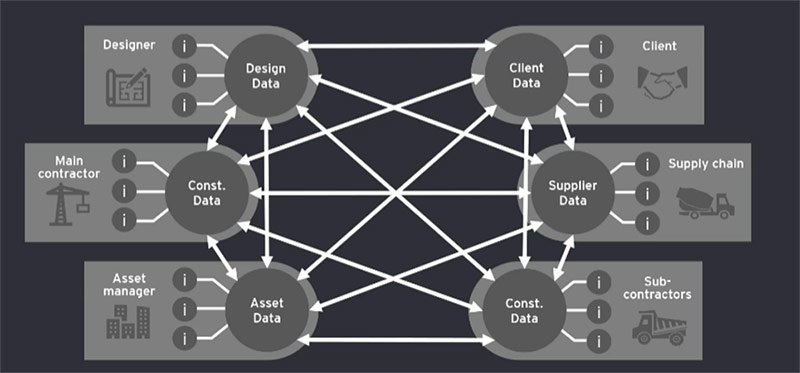Unlocking value through AI in infrastructure: Insights from EY's webinar
Author: OCRC
Posted on Nov 29, 2024
Category: Off-site Construction

At EY, the purpose of "Building a Better Working World" serves as a guiding principle. Through services in assurance, consulting, and tax, EY helps clients unlock innovation, manage risks, and achieve sustainable growth. With a focus on AI, their EY.ai platform integrates advanced technologies to address challenges across sectors, from combating data piracy to enabling smarter business decisions.
This mission underscores their commitment to leveraging AI to foster positive societal change and economic resilience. We had the opportunity to hear from organizational leaders, Gillian O’Boyle and Jonathan Morris, about how the infrastructure sector can leverage artificial intelligence to progress the sector.
Artificial intelligence in infrastructure
The infrastructure industry is at a crossroads, struggling with stagnant productivity and a $64 trillion funding gap to achieve net-zero targets by 2050. During a thought-provoking webinar by EY, the transformative potential of artificial intelligence (AI) in addressing these challenges became evident. From policy roadblocks to the fragmented nature of data ownership, the barriers to AI adoption were explored alongside actionable solutions to develop a path forward.
The power of AI in infrastructure
From Spotify’s recommendation algorithms to ChatGPT, AI is everywhere. AI adoption is growing exponentially across industries, and its potential in infrastructure is enormous. In infrastructure, it can revolutionize project delivery, enhance sustainability, optimize costs, and increase safety. AI's ability to predict risks, manage schedules, and reduce manual errors was illustrated through real-world applications, such as the use of AI tools to forecast delays in capital projects. By analyzing dependencies and project updates, AI enhances predictability and decision-making.
AI can be incorporated into almost every phase of the construction process, from design to operation. Examples include:
- Improved project delivery: Streamline project management, enhance collaboration
- Sustainability: Optimize energy consumption, reduce waste
- Cost savings: Reduce downtime, optimize asset lifecycles, lower operational costs
- Enhanced decision making: Ability to forecast, earlier intervention, reduce manual error, maximize how designs and plans are executed
- Optimized operations: Predictive analytics
- Increased safety: Detect potential risks, improve overall project site safety
However, while AI promises immense value, several barriers remain:
- Unclear ROI: Without quantifiable benefits, stakeholders hesitate to invest.
- Skills gap: A lack of AI-knowledge.
- Cultural resistance: The risk-averse nature of construction hinders change.
- Technological fragmentation: Diverse systems and data formats disrupt integration.
Unlocking AI’s potential
A systems-thinking approach is crucial to harness AI effectively. During the webinar, EY presented a framework for AI adoption that emphasized mindset, skillset, and toolset as essential components for transformative change:
- Mindset: Rooted in strategic vision, governance, and financial stewardship.
- Skillset: Focusing on talent development, partnerships, and organizational structure.
- Toolset: Centered on cloud infrastructure, data integration, and secure architectures.
By aligning these components, EY demonstrates how AI can reshape the infrastructure sector for greater efficiency and innovation.
Conclusion
Achieving the ambitions for AI adoption in infrastructure requires action from all industry stakeholders. The key principles for successful implementation are: first, clearly defining the purpose of AI integration; planning for end-to-end delivery; confirming the operating model; integrating collaborative ways of working; and ensuring assets are responsive to changes. By following these guiding principles, stakeholders can work together to optimize AI’s impact, improve project delivery, and drive long-term value across the infrastructure sector.
Did you miss the session live? Be sure to check out their presentation recording to learn more about the potential of AI in the infrastructure sector.
Interested in learning more about off-site construction? Join us on the third Thursday of every month for a deep dive into offsite construction with leading experts.
Email offsiteconstruction@unb.ca to be added to the mailing list to be the first to know about these professional development sessions.
Don't miss out on the future of construction innovation.
Photo: Technological fragmentation in practice, image courtesy of EY